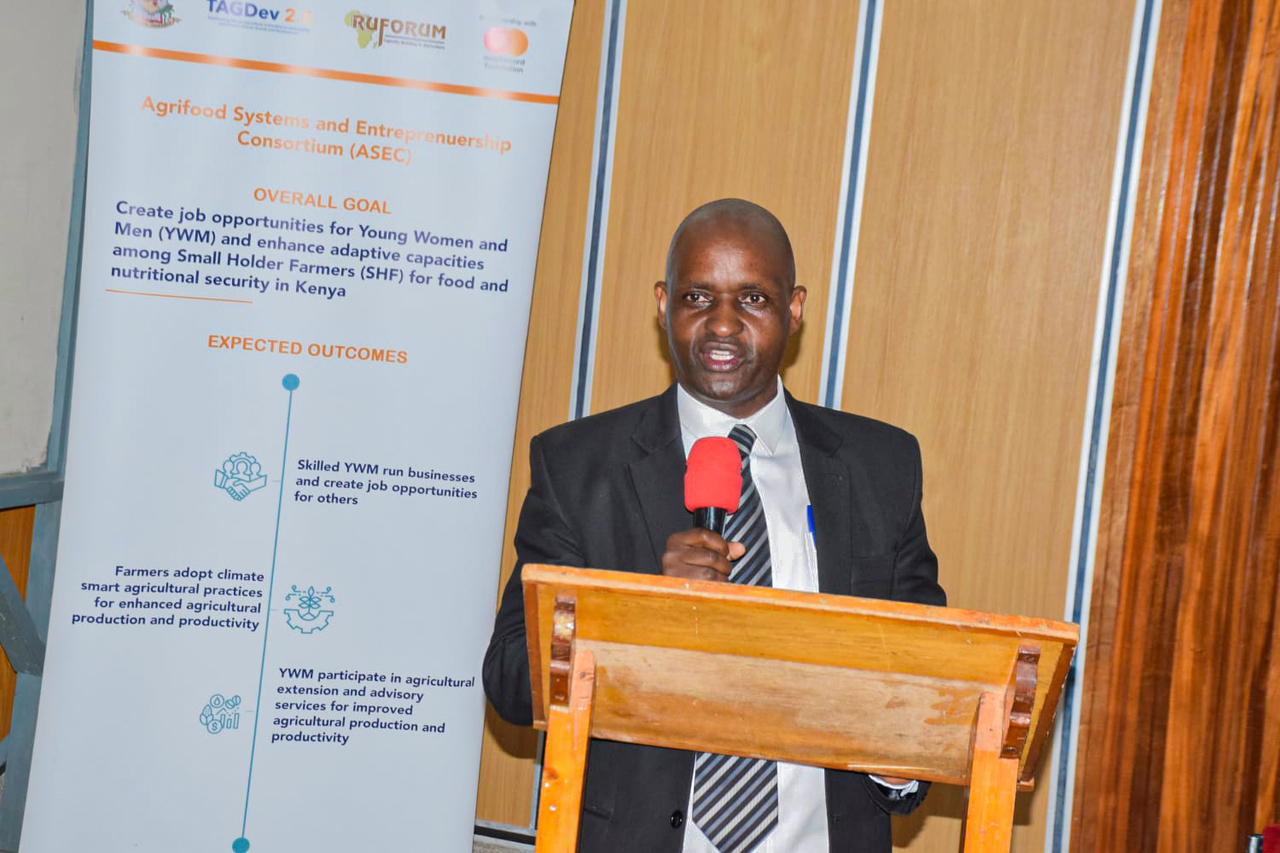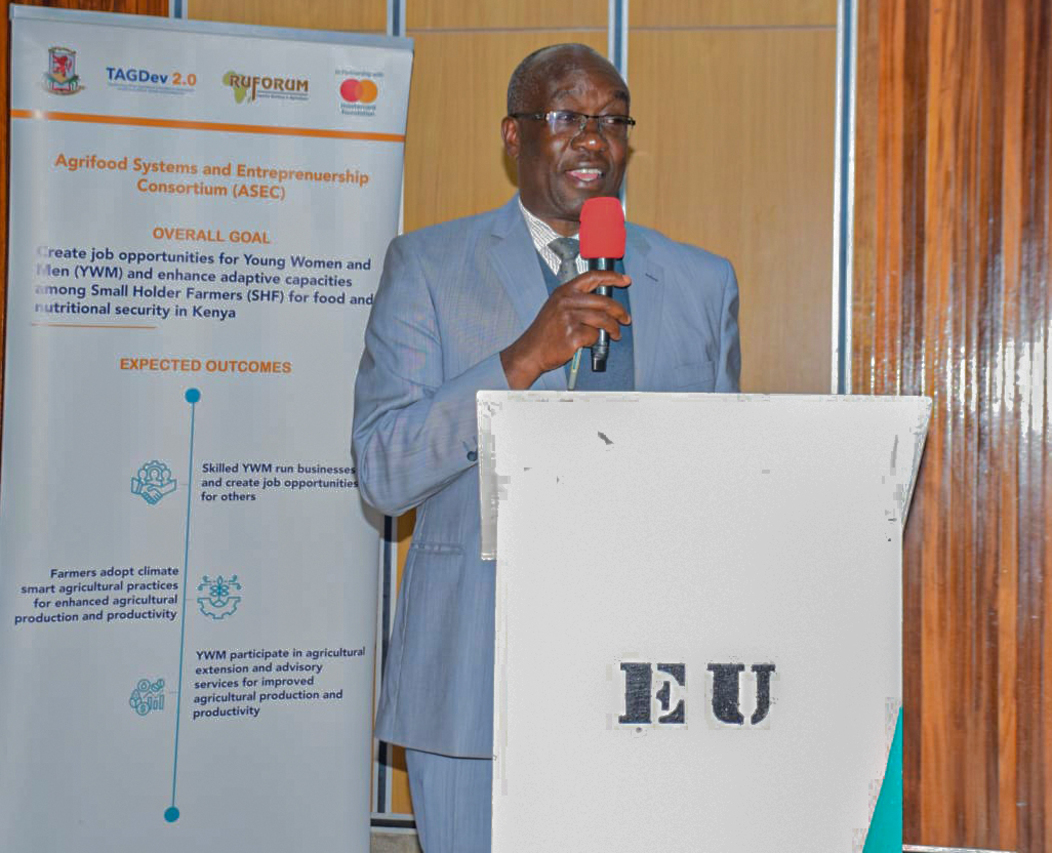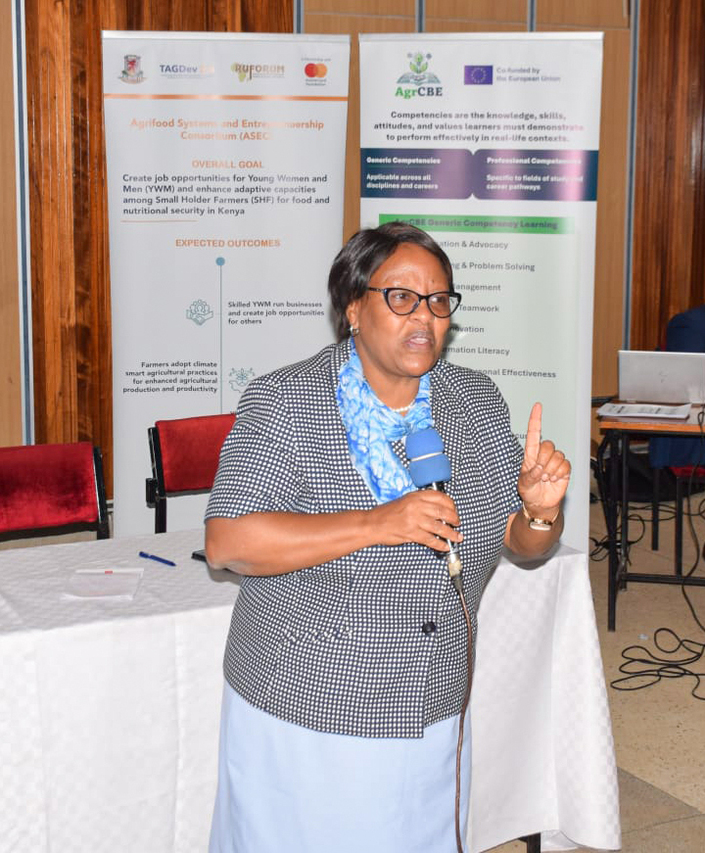The TAGDev 2.0 Program, Egerton University is privileged to be among the key partners supporting the adoption of Competence-Based Education (CBE) in higher education institutions across East Africa. Currently, a four-day training is underway at Egerton University to equip academic staff with the necessary skills and understanding to transition to CBE and to fast-track the adoption CBE across different academic programs. Speaking during the opening of the workshop, Prof. Charles M’Erimba, representing TAGDev 2.0 Program Coordinator Prof. Nancy Mungai, described the training as a “critical step toward reimagining higher education to remain not only academically rigorous but also contextually relevant and impact-driven.”

The four-day workshop, has convened members of the university management, senators, academic staff, curriculum specialists, and institutional leaders. The aim is to build capacity among the entire university fraternity to align teaching practices and curricula with CBE principles by 2029, in readiness for the first intake of Competency-Based Curriculum (CBC)-prepared students from secondary schools.
This initiative reinforces TAGDev’s leadership in transforming higher education across East Africa. The training is co-facilitated by national curriculum bodies including the Kenya Institute of Curriculum Development (KICD) and the Commission for University Education (CUE).In her speech the TAGDev program coordinator highlighted that the program is supporting the review of at least one academic program per department in the Faculty of Agriculture, and selected programs in the Faculties of Education and Community Studies (FEDCOS), Environment and Resource Development (FERD), and Engineering and Technology (FET). These efforts are intended to produce graduates equipped not only with knowledge but also with practical, industry-relevant competencies.

In his opening remarks, Prof. Bernard O. Aduda, Deputy Vice Chancellor Academic, Research and Extension, CBE represents a strategic shift for universities in Kenya. “It is not merely a pedagogical reform, it is a structural rethinking of how we prepare our students to meet the demands of the 21st-century world of work and community life,” he said.
The training emphasizes a shift from traditional lecture-based instruction to student-centered, outcomes-oriented learning, with a strong focus on assessment reform, skills development, and real-world application. Faculty are being supported to internalize CBE philosophy, adopt context-sensitive teaching methods, and engage in curriculum redesign work at the departmental level.


TAGDev is also promoting university-community engagement, student-led innovations, and work-integrated learning as part of its broader effort to bridge the gap between classroom theory and practical application. “We remain committed to supporting curriculum transformation efforts that bridge theory with real-world contexts,” added Prof. M’Erimba.
As Kenya continues implementing the CBC at primary and secondary school levels, universities are under increasing pressure to adapt. TAGDev’s initiative is timely, offering a roadmap for how higher education institutions can remain responsive, inclusive, and relevant. The workshop, which runs through June 27, is expected to produce actionable outcomes for curriculum reform and institutional alignment with national CBE standards.

